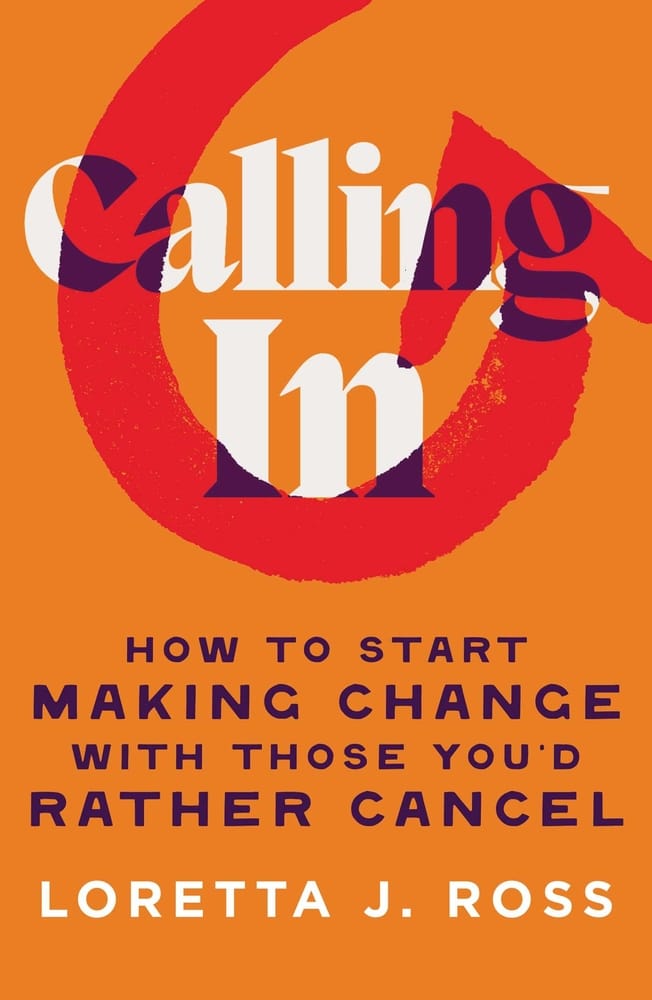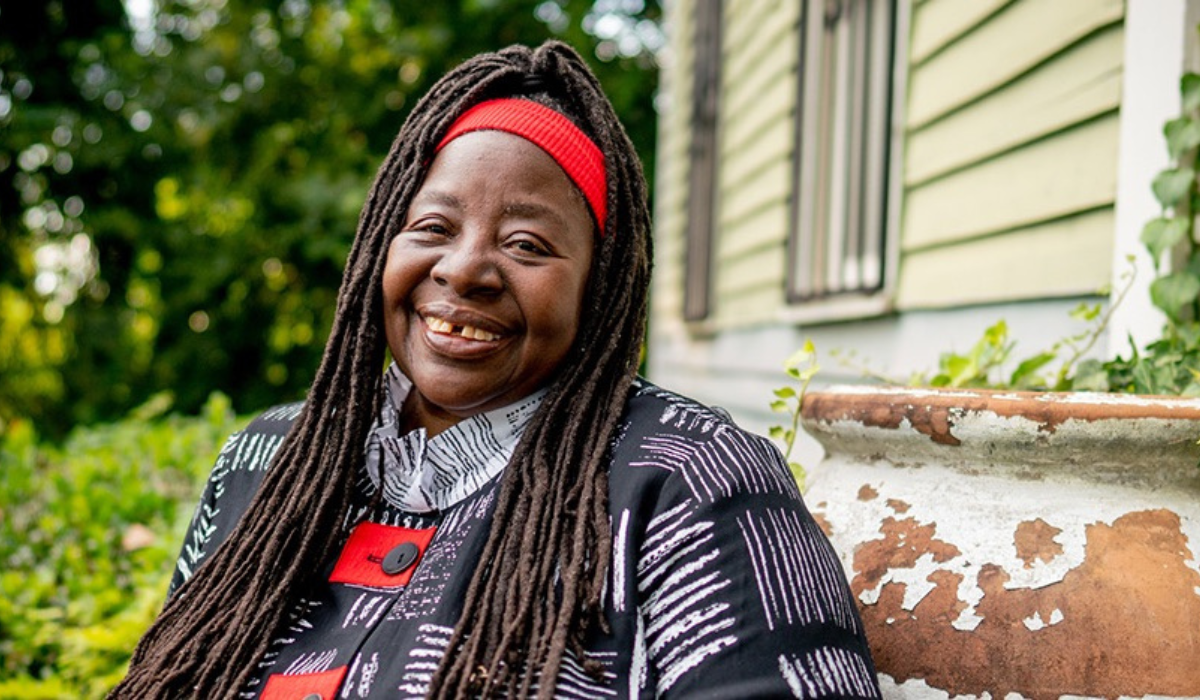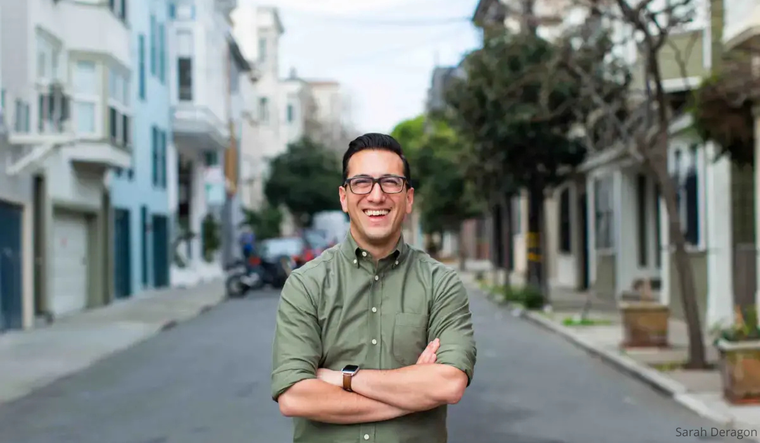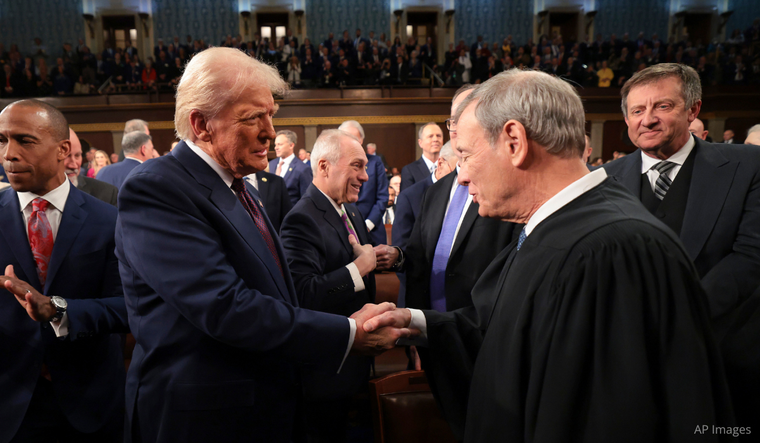Loretta J. Ross Has the Secret to Turning Tough Conversations Into Productive Ones—and It’s the Antidote to Cancel Culture
Loretta J. Ross used to love calling people out.
“I’ve furiously called out enemies. I’ve righteously called out friends. I’ve gleefully called out strangers,” the Smith College professor, activist, and author writes in the prologue to her new book.
But these days, she’s a self-proclaimed “reformed call out queen.” Why? Because publicly blaming and shaming people you disagree with simply doesn’t work, she says. “If calling out worked, I’d still be a call out queen because I love giving voice to my outrage,” Ross told The Sunday Paper. “But if you want someone to make a change, you can’t insult their basic human dignity and then expect them to listen to anything else you’ve got to say.”
In the years since Ross has changed her call-out ways, she’s learned how to invite others into conversation instead of conflict and has the roadmap all of us need to navigate away from “cancel culture.” She teaches these learnings in her online classes, which cost just $5 each—what she calls “the Walmart for consciousness raising.” Ross also gives us tools and techniques to be more strategic if we want to make real change in her book, Calling In: How to Start Making Change With Those You’d Rather Cancel.
This week, we sat down with Ross to learn more about her antidote for cancel culture, why it works so effectively, and the very specific steps each of us can take starting today.
A CONVERSATION WITH LORETTA J. ROSS
Did you have a moment where you realized you wanted to re-think your call-out ways?
I’ve called out a lot of people and had it backfire on me.
There was a young woman in the reproductive justice movement who claimed that she had created the term “reproductive justice,” which I knew wasn’t true because I was in the room when we did it. And instead of calling her up and asking, “Why would you tell such an obvious lie?” I put her on full social media blast, and it backfired on me. Because here I was, 40 years her elder, publicly shaming her in front of the entire movement. I came across as her bully.
I was acting out of my pain at the intellectual theft and didn’t stop to ask her, “Why would you do that? Do you know how saying something like that could hurt you, because you’re telling a lie that is so easily disproven?”
I’d forgotten to care about her in my rage and anger and hurt—and it blew up in my face. The facts of the case were lost, and I lost the battle optics simply because I led with my trauma and I forgot to see her.
Where do we start when it comes to turning difficult conversations into productive ones?
Well, we always start calling in with ourselves. Because we’ve all been through something, and everybody’s hurt hurts. And so we have to take our own pain seriously, address that, and take a pause. Don’t let the first thing that comes to mind out of your mouth, because it’s usually the response of your trauma. Give yourself time to breathe, and then let that second thought emerge, which is usually based on your intelligence and your integrity.
Anybody who’s ever parented a kid knows this: If you say the first thing out of your mouth to your kids, they’ll be in therapy for life. You know to take that pause and think carefully about what you want to say when they’re getting on your last nerve.
There’s a meme I like: “You can say what you mean, and mean what you say, but you don’t have to say it mean.” Choose your words as if you’re holding somebody’s heart in your hand, and you don’t want to squeeze it too tight because you wouldn’t want your heart squeezed too tight. Say what you have to say with love. Lead with your kindness. Be honest, set boundaries, hold others accountable—but don’t do it out of revenge or punishment. Do it because you think so highly of yourself, you would not even inadvertently want to hurt someone else.
That’s why you go inside first: Because if you’re still bleeding from your trauma, you’re just going to bleed all over the other person.
We are living in a time when many of us want to shut things out—the news, conversations about politics we fear will end badly. How can we both address the harm so many of us feel is happening right now, while also creating space for growth and understanding?
A pundit recently wrote the following: “We’ve got to let go of our inner Trumps.” We can’t become bullies because we’re being bullied. Because then we’re falling into their script. We are smarter than them. We are kinder than them. We are more compassionate than their false insincerity. That vulnerability is our strength, and we should never forsake that and use the tactics of the oppressor thinking that we’re going to produce any different result.
When I’m talking to Trump supporters, I see most of them as being misled rather than malevolent. They’ve been through stuff that makes them think how the world should be just like I’ve been through stuff that makes me think how the world should be. And their experiences are just as valid as mine. That’s why I always want to carefully listen and find those shared values around safety, love, kindness, and compassion. Most people have an inner goodness that may not match their outer behaviors.
You know when a natural disaster happens and we run to the rescue of our neighbors? We don’t ask what their politics are, who they’re sleeping with, or when they came to the country. We respond because that’s the humanity in us calling to the humanity in others.
Calling in is about building on what is good in people versus always emphasizing what you think they’re doing wrong. They hear enough of that. They get that everywhere. But who takes their pain seriously? Who sincerely says, “I hear you. I might not agree with you, but we’re going to work together to find a solution to our shared values and our shared compassion.”
“Cancel culture” is a phrase that’s getting used a lot lately. What is it, exactly, and how do you think it’s harming us?
Cancel culture is malevolent, it is divisive, but most importantly, it’s ineffective. It’s the little people who actually get canceled. We’re canceling people who really can’t fight back, and we’re not actually reaching the actors who are causing the most harm—those who have been offered a chance to change and have chosen not to.
That is when calling out is a great tool. We want to stop people with power from causing harm, and find people harmed by that power to build community and maybe even produce change with public shame and pressure. But most of the cancelations are not achieving that. We’re silencing people. We’re making young people afraid to speak up for feat that they’ll put something on the Internet that will damage their lives forever. So, they’re walking around on verbal eggshells. People can’t give their honest opinions anymore. Cancel culture is causing far more harm than solving problems.
“Calling in” doesn’t mean you avoid calling out injustice when you see it, right?
That’s right. I created a continuum—I call it “The 5 C Continuum.”
There’s calling out, which is publicly shaming people. There’s canceling somebody, which is when you want someone to really suffer, lose their job, lose their platform, or at least take a hit to their reputation. There’s calling in, which is when you use love and respect instead of anger, blaming and shaming to pursue that accountability.
Then, there’s calling on. Sometimes you don’t want to give people your time and attention. Calling on is what you do when you want people to do better, but you’re not going to invest the time to make them do better. And the fifth C is calling it off. Why are you bothering to waste your precious time with people lying, trolling, cherry picking their facts, and gaslighting you? Whether that’s happening online or in person, you’ve got a choice to disconnect, and I recommend that you do it.
You have all these choices that project your integrity and your dignity, protect others’ human rights and their dignity, and still achieve accountability.
What do you hope readers will take away from your book?
That we already know what we need. That this is not some rocket science that you have to go to college and learn.
I think most of us know how to be kind and compassionate. We just wish there was more of it in the world. I’m giving you the techniques to use with the rude person at the driver’s license Bureau the same way you would use them with a cashier who gave you too much change and you don’t want to get her in trouble. You can use these techniques in all of those situations, because it’s showcasing your intelligence and integrity.
And you’re modeling the world we all deserve.

Loretta J. Ross is an activist, professor, and public intellectual. She’s a cofounder of the National Center for Human Rights Education and the SisterSong Women of Color Reproductive Justice Collective. To learn more or sign up for her course, Calling In: Creating Change Without Cancel Culture, visit lorettajross.com.
Please note that we may receive affiliate commissions from the sales of linked products.



